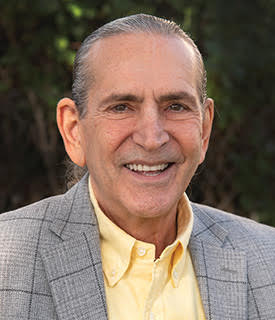How to triumph over adversity
Times get hard, not going to lie. However, it gets hard for everyone. So if everyone has trials and tribulations, why do some people thrive while others get dragged down? When we look at athletes, they’re faced with some of the same adversities such as injuries or losing a game. But why do some athletes keep pushing to improve while others get down on themselves and quit? That difference is what makes a champion. Yes, talent and skill have a big part in the game, but attitude and resilience is what sets them apart from the rest. They’re able to find motivation and purpose in adversity. It doesn’t stop them, they push harder. Here’s how to face adversity, get unstuck, and work harder like a champion:
- Just get up - Sometimes just standing up and moving around can bring motivation. It’s easy to sink into depression or laziness while lying down. Just get up, walk outside, and take a few deep breaths. Changing your scenery alone can be motivating.
- Work in intervals - Research says that only stay focused for 20 minutes at a time. Don’t make work feel exhausting and forceful. Work for 20 minutes then take a break and jump back to it. We can see more productivity in high focused chunks.
- Find gratitude - Sometimes when we feel stuck or depressed, instead of complaining or whiny, let’s not fuss over the little things. Let’s look for the little things to be grateful for. This makes situations lighter and actually shifts our perspectives, pulling us out of that negative downward spiral. Usually when something is going wrong, we zoom in on that one thing, forgetting the gazillion great things that are happening at the same time. If you’re struggling with this, in the moment of stress, just blurt something out.
- Get over yourself - Yes, there are hassles in our days, but they’re all things we can handle. Sometimes you really just need to get over yourself and shift your perspective. Things happen, just deal with it and move on. Having that kind of attitude keeps things light and stops them from dragging you down, while giving you energy of putting something into action.
- Look forward to something - When we have something to look forward to, it motivates us to work our way towards it. Keep your eye on the prize.
Whatever you do, just don’t stay stuck. Get unstuck. Free yourself into progress and productivity in reaching your goals and ultimate satisfaction in life. If you think you need help getting unstuck, please contact Crownview Medical Group and get in touch with a medical professional who can help you reach your truest potential.
Source:
https://www.psychologytoday.com/blog/imperfect-spirituality/201606/how-face-adversity-champion
Can anger be good?
We can unanimously agree that we all want to be happy. That’s what we strive for in life - making ourselves and others happy. No one likes being angry, infact we try to avoid getting upset or making others angry. What if anger turned out to be a good thing, would you believe it? Really, can anger be good? Yes it can! And here’s how:
- Anger shows us our needs and limits - When things make us happy, it’s easy to learn what makes us feel good. But how do we know what makes us feel not so good? Anger is that alert. Anger tells us what sets us on fire and gets us worked up. It also lets us know when we’re spreading ourselves too thin or how much overwhelms us. It can show us how much we can handle.
- Anger helps us to set our boundaries - We’ve talked about the importance of setting personal boundaries. Anger helps us to identify where we draw those boundaries. If you get anxious to see your parents because you know they’re going to ask when you’re getting married or if you’re going to get a better job, that’s anger signalling something to us. It’s telling you it’s time to talk with your parents and draw a line, asking them to please not ask those questions anymore.
- Anger can turn into motivation - Does it make you angry when your boss doesn’t appreciate your hard work? Or maybe you didn’t perform your best in that game? That anger can be turned into motivation that can propel towards a greater reward. If inequality or gender wage gap upsets you, turn that anger into motivation to get involved in politics or your community.
- Anger can strengthen our relationships (believe it or not) - This might come as a shocker to some people because no one likes being angry at their partner or their partner being angry with them. Here’s how it’s helpful to us; in conflicts and disagreements, we learn more about our partners (they’re needs, boundaries, desires). When we learn those things and agree to have an equally respectful relationship, we’re able to compromise and grow together, seeing things from the other’s perspective.
When we’re avoiding anger or being afraid of someone else being angry, sometimes this commits us to inaction. Anger helps us to broaden our perspectives and grow. Of course, we need to remember there’s healthy anger and unhealthy anger. We aren’t encouraging rage. Let your emotions and the emotions of others speak.
If you’re struggling with controlling your anger in a healthy way or struggling handling someone else’s anger, please contact Crownview Medical Group and get in touch with a medical professional who can guide you.
Sources:
https://www.psychologytoday.com/blog/mindful-anger/201606/is-emotional-discomfort-good-you
Child brains and screen time
Every kid can be bribed with an iPad. They go crazy for screen time. Or maybe it’s the screen time that’s making them crazy. Kids as young as two years old are navigating through apps, playing games, and taking selfies. The US Department of Health and Human Services estimates that American children spend seven hours a day in front of electronic media. That’s almost an entire work or school day! There’s a number of troubling studies that reveal a delayed cognitive develop in kids, even though it seems like technology use is making them smarter.
Dr. Aric Sigman, an associate fellow of the British Psychological Society and a Fellow of Britain’s Royal Society of Medicine, said when a young child gets hooked on electronic media, it actually does damage to their developing brain. It actually has a counterproductive to what the proud parents are trying to foster in their kids: the ability to focus, to concentrate, to lend attention, to sense other people’s attitudes and communicate with them, to build a large vocabulary—all those abilities are harmed. When parents view technology as something “smart,” they’re proud of their children for being capable of using a device. However, it’s doing more harm than good.
Between birth and the age of 3, that’s considered a critical period for developing brains. This is when a permanent foundation is set for later brain functioning. A child’s neural networks are developed by picking up specific stimuli from the outside world. Unfortunately, this stimuli can’t be found in a tablet, hence stunting the child’s development. If damage occurs during the crucial years, the effects can last forever.
Devices are an easy shortcut for parents. It gives them a break and keeps the child occupied/entertained/”learning.” However, by allowing your device to tell your child a bedtime story instead of them hearing your own voice, there’s other elements to that interaction that are crucial for development that are being left out. Human interaction is the only way to teach children nonverbal cues such as facial expression, tone of voice, and more. When that part of the brain doesn't develop in the years it should, child struggle with social interaction and making friends.
The immediate stimuli and response children are used to getting on electronic devices are not the same in real life. They become addicted to the high stimulus from experiencing the hits of dopamine they get when they swipe the screen and see a photo with bright colors. This is a pattern that resembles the dangerous cycle medical professionals see in drug and alcohol addicts.
If you think your child might be addicted to electronic media, please contact Crownview Medical Group to get in touch with a medical professional who can provide advice based on your child’s individual needs.
Source:
https://www.psychologytoday.com/blog/behind-online-behavior/201604/what-screen-time-really-does-kids-brains
Listening to chewing prevents overeating
It’s easy to overeat when we’re having dinner while watching TV or when we’re eating handfuls of popcorn in the movie theater. Both of these examples of overeating are also examples of mindless eating - when we just eat without even being hungry. With this in mind, it makes sense to say that we would eat less if we were more aware and attuned to our hunger. Researchers from Brigham Young University and Colorado State University agreed with this and decided to test it out.
Come to find out, their results seem to prove that listening to ourselves chew, crunch, and swallow our food actually prevents us from overeating. How so? When we listen closely to the sounds of eating, we’re actually becoming more mindful or what we’re doing. The sound cues bring us into the moment of eating which reminds us why - because we’re hungry. So when we’re not hungry, focusing on sound cues, we realize we don’t need to eat anymore.
In one study, 182 undergraduate students participated. Some were instructed to eat a bowl of Famous Amos mini cookies as loud as they could, while others were ask to eat as quietly as they could. A third group was asked to eat as they normally would.
Then 71 students were given bowls of pretzels. Everyone wore headphones blasting white noise. Those who could still hear their chewing through the headphone volumes ate fewer than those who couldn’t hear chewing at all.
Another study had 156 students eat a bowl of Toll House Pita Chips. Before participating, researchers told some students descriptions about crispiness and crunchiness or descriptions about flavor and taste. Those who heard descriptions of crunchiness, paid more attention to the sounds of chewing, and ended up eating less than those who paid attention to flavor.
So there you have it, evidence that paying attention to chewing sounds makes more aware of what we’re actually swallowing; hence preventing us from overeating. The reasons why we don’t do it naturally - according to the students who participated in the study - it’s boring. Also, because our attention is pulled by all sorts of stimuli around us, especially when chewing is second nature. We have to consciously make an effort to be more mindful in everything we do.
If you struggle with overeating or would like to practice being more mindful, please contact Crownview Medical Group to get connected with a medical professional who can provide guidance based on your specific needs.
Source:
https://www.psychologytoday.com/blog/the-truth-about-exercise-addiction/201604/one-easy-way-curb-overeating
Do I drink too much?
When we think of alcoholism, we usually associate it with an addict who drinks all day everyday. Someone who’s always got a drink in their hand or maybe sits at a bar no matter how early in the day it might be. We might even pass judgement, assuming this person is unreliable and irresponsible, maybe going as far as saying nonfunctional in society.
Of course these are harsh stereotypes and we shouldn’t judge. Especially because that’s not the cookie cutter example of an alcoholic. In fact, alcoholism could affect even the most seemingly functional people. We might know someone who drinks excessively, but because they show up for work everyday without a hangover and achieved a high level of success, we wouldn’t consider them someone who has a problem with alcohol.
You would be surprised to know that “excessive drinking” is considered consuming 4 alcoholic drinks in one occasion and having 8 or more drinks within a week. Drinking this much puts people at higher risk for alcoholism. And even if you do drink excessively, it also doesn’t mean you’re an alcohol dependent either. In fact, 90 percent of people who do drink excessively aren’t considered alcohol dependents.
Even if you’re not an addict, it’s possible you could an unhealthy relationship with alcohol. However, we can’t judge someone’s use strictly based on frequency alone. There are other contributing factors in the way we consume alcohol.
For example:
“How quickly are you drinking? Are you drinking on an empty stomach? Are you drinking before you have to drive or supervise your kids? Did one drink lead to another, which led to another?” And of course, there are situations that make consuming alcohol very unsafe - drinking while you’re pregnant or with medication use.
This is why the term “alcoholism” is recently being replaced by “alcohol use disorder,” which encompasses a wider range of drinking behaviors that are unhealthy. If you’re wondering if you or a loved one has a problem with alcohol, it’s worth taking a closer look at. Please contact Crownview Medical Group to get in touch with a trained medical professional who specializes in providing advice for your individual needs.
Source:
https://www.psychologytoday.com/blog/women-s-mental-health-matters/201604/do-i-have-problem-alcohol
Drugs, alcohol, and nutrients
Because we know drugs and alcohol have a chemical effect on the human body and addiction, we’re not surprised that it affects us on a nutritional level. When you think about, most drugs are made from chemicals. Of course this would affect the body - we’re not built to digest and absorb most of these chemicals. Healthy nutrition is what fuels our bodies to function properly. So when we disrupt the digestive system, we’re not able to absorb the proper nutrients which leads to vitamin and mineral deficiencies.
First, taking a look at alcohol. Even though it has calories, it has zero nutrients. A lot of alcoholic drinks are loaded with sugar (which isn’t the best for our bodies). When we drink our calories in alcohol, we’re displace many of our food calories. Not only will drinking affect our organs such as the liver, it does damage to the digestive system as well. Heavy drinking could lead to deficiencies in vitamins A, C, D, K, and B vitamins, as well as calcium, phosphorus, and magnesium.
When drug stimulants such as cocaine, adderall, methamphetamine, and ritalin, actually suppress our appetite. So when users aren’t hungry, they won’t eat. This is another way the body is malnourished. Even long term use with natural drugs such as marijuana can cause deficiencies, such as zinc and problems metabolizing omega-3 fatty acids.
People will use drugs and alcohol to cope with stressful times or down moods. However, it actually makes it worse. Not only are we avoiding life and not learning healthy coping skills, but we’re also damaging the way we absorb nutrients that specifically aid in brain function and emotional/mental health.
For example, alcoholics could be deficient in vitamin D. This deficiency is known to be associated with depression, fibromyalgia, and other mood disorders, as well as a decreased immune system. Deficiencies in omega-3 fatty acids are connected to anxiety, depression, relapse, and suicidality. Many suicide victims struggled with substance abuse. They weren’t getting enough omega-3 fatty acids and other nutrients. Of course, mood disorders and suicide are more complex than this. Nutrition is just a contributing player.
Instead of draining our nutrients and damaging the way we absorb them, we can avoid drugs and alcohol and nourish our bodies with supplements. Even during addiction recovery, vitamins and minerals are a great aid in recovering the body as well as the mind.
If you or a loved one are struggling with substance abuse with drugs and/or alcohol, please contact Crownview Medical Group to get in touch with a medical professional who can provide some advice based on your individual needs.
Source:
https://www.psychologytoday.com/blog/real-healing/201603/alcohol-or-drug-use-can-rob-your-body-nutrients
Comparing ourselves to others isn't as motivating as we think
Sometimes we think it’s a good idea for us to know our competition. Maybe comparing ourselves to others will give us an advantage in knowing what to expect, where we stand, and/or how much effort we need to put into something. The crazy thing is, this form of motivation is actually counter productive. How so, you ask?
This particular topic was actually looked into for the March, 2016 issue of Psychological Science by Todd Rogers and Avi Feller. In one study, they examined 5,000 participants in a “massive open online course” (MOOC). Students were required to write a paper as well as evaluate at least three other papers written by their peers. The study was to see how many students would actually finish the course and receive credit in the end.
Looking at students who read papers by their peers: interestingly, 68% of the students who peer-evaluated average quality essays finished the course; Yet, only 45% of the students who peer-evaluated above average essays finished the class - seeming to be less motivated to finish the class compared to those who evaluated average essays.
Looking at how students were influenced by their own paper graded: 93% of the students who received perfect scores finished the class. 75% of the students who got average scores finished the class.
What this tells us, is that people lost more motivation by reading an above average essay written by someone else compared to getting an average score on their own essay.
Another part of the study had students read two other essays, either excellent or poor. Then they were offered a chance to write another essay to win a prize - also being rated if they felt capable of writing an excellent one. Those who reviewed excellent essays were less likely to participate in writing another essay.
Basically, when we’re comparing ourselves to others, we create a standard in our minds. And sometimes we feel like we can’t measure up to it, making us less motivated to even try, even lowering our self esteem. We’d perform better if we just focused on doing our best and not worrying about where you stand in the competition, believing in our own abilities, talents, and ideas are all we need to be a part of the competition. We don’t need to be creating unnecessary standards or rethinking ourselves. Those who felt discouraged by reading the above average essays, may not have known their own essay would be evaluated as above average as well.
If you or a loved one needs to boost their self esteem or feel like they’re being held back because of insecurities from not feeling good enough, please contact Crownview Medical Group to get in touch with a medical professional who can offer some advice.
Source:
https://www.psychologytoday.com/blog/ulterior-motives/201604/social-comparisons-can-make-you-give
How to know if you're in a relationship with a narcissist
It’s hard to recognize being in a relationship with a narcissist while we’re in it. We usually realize this scary thought/reality once the relationship has already gone south. This is when we start to see all the red flags we glanced over in the beginning - another scary thought/reality. “How did I not see the signs?” But don’t be too hard on yourself, you’re not the one to blame. Narcissist are really good at fooling us, even themselves. Here’s how to know if you’re in a relationship with a narcissist.
- Appearing confident and strong
This is usually the first deception we’re easily blind to. They’re usually very attractive and extremely charming. Narcissist have amazing self presentation. Remember, they really care about themselves first and foremost. They value success, even the appearance of it, which they display.
- Appears sweet and always thinking of you
We assume seeing a narcissist would be obvious because they talk about themselves a lot or demands everything to be done their way. This isn’t the case. It’s more stealth than that, it’s an unnoticed manipulation. For example, they’re good at presenting ideas that seem like they’re better than your current plans and saying things like “spontaneity is the key to life” which lead you to agree and change your plans. Or perhaps they suggest something for you, like french food because it’s more romantic, when really it was for them. And somehow now you’ve ended up doing what they wanted to do, not what you originally wanted to do. You don’t see anything wrong with this at the time because you were convinced it was sweet and for you. Not seeing how you just did what they wanted.
- Seems to worship you
They seem to put you on a pedestal, always complimenting you but maybe only in front of or to other people. Presenting the perfect relationship to outsiders. But doesn’t worship you that way when you’re alone. Or if they do, it’s more like “I’m so lucky” or complimenting in a way like you have you to amazing because that’s why they’re with you.
- Seduces you with a roller coaster relationship
A narcissist is a pro at playing the highs and low in a relationship like it’s great passion. To be so passionately in love, always bickering because that’s what being a married/in love couple is like, and even makeup sex. There’s a definite play on emotional arousal in any way. And unfortunately for us, that’s the trap. Because any emotional arousal, good and bad, tend to hook us more.
- Knows how to work your investment/empathy in the relationship
Narcissist are ultimately game players. When someone sweet and honest gets with someone capable of lying, manipulating, and may not even care about you, there’s no chance. However, they need to be in relationships and always have someone by their side because they need it to self regulate, enhance or maintain self esteem.
If you or a loved one suspects to be in a relationship with a narcissist and doesn’t know how to handle it, please contact Crownview Medical Group to get in touch with a medical professional who can provide some advice.
Source:
https://www.psychologytoday.com/blog/tech-support/201604/6-reasons-its-easy-be-fooled-narcissist
Can who you love change who you are?
It’s interesting to look at the relationship between our identities and our relationships - even if you’re thinking about this for the first time. It’s interesting to look at who we think we are and how that’s impacted by the relationships we have over time, especially romantic relationships. For example, think about your initial feelings of attraction towards someone and your desire to potentially be with that person, could that have an affect on how you see yourself? Can who you love change who you are?
There’s actually been some research that shows how the desire to be with someone romantically can predict changes in a person’s self-views to be more similar to their desired partner. In other words, if someone very artistic sparked your interested, you then might alter your views of yourself to be more artistic or focus more on sharing your artistic side in hopes of furthering that relationship.
This study focused on positive traits, like being artistic. However, if someone had very low self esteem, it was noticed that they would change their self-views negatively to be more similar to their desired partner’s negative traits rather than the positive ones. And those with extreme high self esteem did the opposite.
More recent studies are finding that a person’s self esteem is a very important predictor of whether that person will take on positive traits or negative traits from the person they are romantically attracted to. So if an individual has very low self esteem, they will be more drawn to the negative traits of the other person and take on that influence, so creating a negative connection. People with higher self esteem will create more positive connections by focusing on the other person’s positive traits.
Our affection, what we’re drawn to, how we present ourselves to connect with a desired person, can tell us so much about ourselves. Our romantic desires can influence our identities and how we define ourselves. This is why it’s wise to know who we are and identify ourselves to start with, so we can be more aware of the direction we want to grow in - positive or negative. And we can start a healthy relationship with someone who serves as a great influence because we were in a self aware.
If you feel like you’re feeling different or like you’re becoming someone you don’t want to be, or if you have a loved one who’s changed negatively because of a relationship, please contact Crowview Medical Group to get in touch with a medical professional who can offer you some advice.
Sources:
https://www.psychologytoday.com/blog/me-you-us/201603/who-you-love-changes-who-you-are
Why going to bed early makes us more productive
When we have a lot to do but we’re starting to feel tired, our usual thinking is to stay up a couple hours more to get our work done. However, that might not be the best way to be productive. Sleeping and doing more work the next day, actually would be the smarter choice. This seems counter productive because we’re getting less done and pushing back work, but really we can get more done the next day feeling energized and alert. Here are reasons why going to be early makes us more productive:
- You’re not retaining when you’re tired
When we get more quality sleep, we’re able to retain more information. When our minds don’t get enough sleep, it impairs our focus, attention, and working memory. This explains why we have to repeat tasks or reread things over and over, when we’re tired.
- Not enough sleep calls for not a good mood
People talk about being hangry but no one talks about being sangry. Studies show how lack of sleep makes us more irritable and moody. Examples of this isn’t even necessary because we’re all very familiar with this.
- Bad sleep, bad judgement
There’s another study from 2007 that was published in the journal Sleep, found that a lack of sleep actually has a negative affect on our moral judgement. We struggle more with moral dilemmas and/or make wrong choices when we’re tired. We’re also just slowing in making decisions in general when we’re sleep deprived.
- Increased risk of accidents
Research from Harvard Medical School has reported that insomnia is the cause for 274,000 workplace accidents and errors each year. Being tired impairs our motor skills and our reaction time. Jobs that are more hands on or require a person to operate machinery need a well rested employee. Being tired can cost your employer a lot of money as well as your safety.
- Better rest means better health
This seems like the more obvious reason. We all know that sleep is healthy. Yet, we still stay up late and don’t get enough of it! Getting more waking hours isn’t worth the health risks like stroke, diabetes, high blood pressure, etc.. Our immune system needs sleep, and with a weaker immune system that puts us at higher risk of illness.
- Not 100% rested, not 100% efficient
When you’re tired, the last thing you’re thinking about is being efficient. It’s hard to be engaged in the present moment when you’re not 100% there.
If you feel like you’re not getting enough rest because you have a lot going on, anxiety, stress, and need help relaxing or better managing your time, please contact Crownview Medical Group to get in touch with a medical professional who can provide you with some advice.
Source:
https://www.psychologytoday.com/blog/what-mentally-strong-people-dont-do/201604/7-reasons-productive-people-go-bed-early
Understanding Self Destructive Behaviors
Have you realized that something you’ve been doing is actually causing you harm? Do you find that behavior hard to resist? Perhaps you find, or even make up, reasons as to why you can’t resist those behaviors? Maybe it seems physically impossible for you to resist because of something going on with your body?
Really, it comes down to pleasure and relief. Understanding self destructive behaviors is realizing how it provides us short term pleasure and relief and why we continue to do it.
Which Action Is a Harmful Behavior?
Examples of self destructive behaviors are:
- alcohol/drug abuse,
- binge eating,
- compulsive computer gaming,
- self-injury,
- smoking,
- chronic avoidance, or
- other behaviors that seem helpful in the moment but actually harm us over time.
Traits Self-Destructive People May Share
People struggling with self destructive behavior differ dramatically, but there are some traits or histories in common. Everyone has a different story specifically, but as a general overview, here are some of those traits:
- Born to feel emotions more than others. This is not a bad thing, in fact there a lot of advantages to being able to feel and connect more.
- Experiences of physical abuse, neglect, or continuous criticism.
- Routine experiences with family members who discourage expression of emotions or have self destructive behaviors themselves when coping with their emotions.
- Bullying at school, abuse from someone outside of the family, being excluded or mistreated by other children.
Ways To Stop Destructive Behavior
Trying to “not feel” or attempting to just move on isn’t really effective at helping us cope with these emotions and experiences. We can’t just turn off our feelings and that’s why some people resort to these behaviors as a release. But because these behaviors never actually heal us, it just masks over for the time being, we bottle things up till we’re overflowing.
When we know these decisions aren’t good for us, we immediately try to stop. But when we start to crave that behavior again, it’s nearly impossible to resist. No matter how much we know we shouldn’t give in. Then when we do, we’re depressed because we feel like something is inherently wrong with us. That we can’t resist.
When trying to move on from these behaviors, remember it DOES NOT mean you’re weak, selfish, or must have a physical condition of some kind that’s preventing you from stopping.
However, it DOES mean you need to learn how to cope in a different way that will be more effective with reducing pain, both short and long term. It also DOES mean you’re life will improve dramatically.
Getting Help
If you or a loved one struggles with self destructive behaviors, please contact Crownview Medical Group to get in touch with a medical professional who can provide you with advice on how to overcome those behaviors with an individualized plan.
Understanding PTSD
When someone experiences a life threatening situation, it has a dramatic affect on them as a person. Experiences change us throughout life. Some for better, while others can be for worse. When someone goes through something life threatening, they could suffer from symptoms of post traumatic stress disorder, commonly referred to as PTSD. When you think you or a loved one may struggle with this, here are some things to know about PTSD:
Not all pain is physical - when an individual’s existing coping skills are overwhelmed by an experience, new (and maybe even harmful) ways of dealing with that experience are formed that may interfere with someone’s everyday life. Some may avoid anything that reminds them of the experience, numbing themselves to avoid memories or flashbacks, always being on edge to prevent the trauma from happening again.
At risk - some people are more at risk to develop PTSD than others. It can happen to anyone in so many different ways. However, there are places where people are more exposed to traumatic or life threatening events that put them at risk to develop the disorder. Other’s lifestyles may put them in at risk situations such as serving in an active military zone. 30% of returned veterans who don’t receive treatment of PTSD will turn to harmful coping methods to numb themselves and repress those experiences.
Ignoring it won’t help - this isn’t an “out of sight, out of mind” situation. If symptoms of PTSD are left untreated, it can actually worsen overtime rather than improving or fading away. Untreated PTSD can also lead to other psychological conditions such as depression, anxiety, and addiction.
It is treatable - there are trained medical professionals and therapies that specialize in treating PTSD. PTSD is a set of coping skills that were developed around a traumatic experience. So it’s possible to learn new coping skills that are healthier approaches for handling anxiety.
Unfortunately, traumatic events happen in our lives. As mentioned, some have increased risks than others, but regardless, it happens. But these traumatic events do not have to control our lives. Recognizing the symptoms and receiving treatment can help anyone gain control over their lives again.
If you or a loved one is struggling with symptoms of PTSD, please contact Crownview Medical Group to get in touch with a medical professional who can provide advice and a individualized treatment plan.
Sources:
https://www.psychologytoday.com/blog/ending-addiction-good/201602/four-things-you-need-know-about-ptsd
Introverted or lazy?
Am I just introverted or lazy? Solitude is extremely important to introverts. A misconception of introversion is that introverts rather be alone because they’re unsocial. In actuality, introverts refuel and are at their best selves in their moments of solitude. If you’re an introvert, you can vouch for this. “You’re time” is the most important time and you’re sure to take it. However, can we confuse our need for solitude with taking too much downtown?
Ask yourself: Do you have a problem? Do you think the amount of downtime you’re taking is obstructive? Is your need for downtime keeping you from doing stuff that’s important either practically (cleaning the house) or emotionally (maintaining key friendships, pursuing a hobby)? Or is your need for downtime just giving you a perfectly acceptable excuse to do things you don’t want to do?
Introverts actually find a lot of productivity in solitude and get a lot accomplished on their own. Solitude can be reading a novel, studying, gardening, hiking, cleaning, etc.. So if you’re taking a lot of alone time and notice you’re not being productive, getting anything done, not even hobbies or things that uplift you, then it might be something to start looking into. Regardless, solitude should serve you. If it’s not, there’s a chance you’re just taking too much downtime. If you feel like you’re always exhausted and need the time to rest and recharge, that’s understandable. But if you’re feeling that need more often than enough, you need to look at how/what’s draining your energy.
Evaluate your workday: Check your workload to see how you’re managing your energy. The less energy spent on the job, the more you could spend in your leisure time. Are you going out to lunch everyday with your coworkers? Try only a couple times a week. Are you on the phone a lot or in a meetings? Are you able to rearrange your schedule to designate certain hours for that?
Social life: Are you saying “yes” to every invitation you get? Or maybe you’re waiting around to be invited to things, but it ends up being things that are more exhausting for you, but you do it anyway because you want to spend time with your friends? How about thinking more about what you like to do and inviting others who will enjoy those things too.
Downtime To-Do lists: Maybe you need to spend some downtown outside of the house. Perhaps getting things done alone like going grocery shopping will help.
Unplug: Get offline. Sometimes an overload of information and stimulation can be very exhausting. And nowadays, that’s typical everyday life - to be online. This can easily be a sneaky deceiving energy drainer.
If you’re struggling to manage the downtime you need and not getting trapped in a lazy spell (or maybe you just need a little more motivation), please contact Crownview Medical Group to get in touch with a medical professional who can provide you with advice.
Source:
https://www.psychologytoday.com/blog/the-introverts-corner/201603/am-i-introverted-or-am-i-lazy
Stay in control in a difficult conversation
There are conversations or people that drain us or make us feel insecure, maybe even inferior. Sometimes we’re the subject of a joke we don’t agree is funny. People could also just be flat out mean and say demeaning, invalidating, critical things to us in casual conversation that still hurts our feelings.
Of course, this shouldn’t be anyone’s motive in a conversation and maybe they don’t even realize that it’s something they do. We have no control over this; however, we do have control over how we manage it. Remember that a conversation is a two way street. You are just as much of a participant as the other person, which means you have just as much control. Here are some way to stay in control over a difficult conversation:
- Deflect - change the focus of the central topic. Not meaning to change the subject, but rather treat the center topic indifferently and have an attitude of “Surely, you don’t mean me!”
- Distract - now we’re talking about changing the subject completely. Or possibility include someone else in the conversation or turn everyone’s attention on something else happening in the environment. Get people thinking about something else.
- Fog - ask a lot of questions for clarifications or more details. This opens up opportunities for a segue or related topic. In a way changing the subject, but not completely, just redirecting it. For example, say “By the way…”
- Stay neutral - this is an easier way to stay emotionally detached from the conversation but still allow it to continue, “Really?” “Interesting.” “That’s cool.”
- Distance - there may be times we need to actually detach and distance ourselves by either walking away, zoning out, or daydreaming.
- Drift - slowly drift the conversation to something that’s more of interest to you, “That reminds me…” and lead into something you’d like to talk about.
We can also emotionally insulate ourselves by creating a separation between us and the person being demeaning. To protect ourselves from negative feelings, just imagine some sort of barrier between you that creates space. For example: a wall, a force feild, shades to pull down. Just visualize that separation before getting into a conversation with the speaker or when you start to feel negativity.
If there are remarks that don’t make you feel good, don’t pretend to agree and laugh. Don’t respond to comments that are meant to shame you. Don’t worry about keeping the peace if the person keeps stomping over you. Don’t let your feelings be triggered.
If you’re struggling to stick up for yourself or find it difficult to manage these interactions, please contact Crownview Medical Group to get in touch with a medical professional who can provide you with some advice.
Source:
https://www.psychologytoday.com/blog/through-the-looking-glass/201603/managing-interactions-mean-critical-people
Reasons to do yoga
Yoga has become more popular these days, entering a more mainstream reach. Some of us might still be unsure or hesitant of yoga. “I don’t think it’s my thing.” “It’s boring and weird, too hippie for me.” “I’m not flexible at all.” And there are others who have experienced the wonders of taking part in a mindfulness practice. Whatever your feelings are towards yoga, here are some reasons to do yoga right now!
- Beneficial for the body - The various poses and stretches improve our flexibility, immune system, muscle strength, bone strength, posture, pain management, and reducing inflammation. A study has even found that “yoga results in changes in the gene expression that boost immunity at a cellular level.” It’s also helped with fatigue and pain management for cancer patients. It’s also helped to improve breathing for those with asthma. It’s also helped to reduce migraine headaches.
- Stress management - The calming effects of slow deep breathing has been known to reduce stress and calm our minds from racing thoughts. It also quiets anxiety. A study found that yoga also increases serotonin which is a neurotransmitter that boosts mood. It also decreases the stress hormone cortisol. This helps those suffering with mood and anxiety related disorders.
- Mind body awareness - Improved mental health is strongly related to the connection between mind and body. This increases our awareness and keeps us grounded when we’re feeling like we’re drifting off. Aligning the mind and body through yoga is not only physically beneficial but mentally as well. The mind body connection helps a person be more attuned to how the body reacts to thoughts and how thoughts react to the body.
- Detach from technology - With technology obsessions and addictive behaviors becoming more prevalent in society, yoga helps a person to detach from their devices. Because it demands your attention, we remain focused on our breath and our bodies while distancing ourselves from distractions - keeping us in the present moment. Technology and social media influences negative physical (eyes train), social (not being in the present moment, insecurities, bullying, comparing ourselves to our peers), and economic (poor work performance) impacts on our lives. Yoga gives us a moment to unplug and be present to be more mindful and aware of ourselves and our surroundings.
- Focusing - Yoga poses require us to center our focus and remove our distractions in order to hold the position. We also hold the pose for a few rounds of breathing which means we hold our focus for that entire time. Doing this improves our balance, coordination, memory, and exercises our brains. If our minds wander, so do our balance.
If you struggle with focusing, coping with stress management, or feel like you need to be realigned, please contact Crownview Medical Group to get in touch with a medical professional who can provide you with helpful advice for your individual needs.
Sources:
https://www.psychologytoday.com/blog/the-first-impression/201601/5-reasons-do-yoga-right-now
Why crying is healthy
Did you know that crying is healthy? This makes sense when we say that it’s a type of emotional release. Bottling up emotions or just feeling overwhelmed will lead to the need of release. Just like shaking up a can of soda, the pressure builds before it’s about to explode. However, it’s best to avoid that explosion and release those emotions sooner rather than later.
Since crying is healthy, why does society view it as a weakness? This sends the wrong message because it forces us to hold in our tears. The reason that we need crying as a release is because it literally releases toxins from the body caused by increased stress hormones. So when we hold in our tears, we’re also holding in all these toxins. This would explain how our emotions have a physical affect on our bodies. Some people suffer from symptoms and ailments that seem to be unexplainable. Sometimes really, it’s caused psychologically. These are clinically known as somatoform disorders.
Examples of these physical symptoms and mental health issues would be:
- Acute pain
- Muscle aches/soreness
- Neurological problems
- Gastrointestinal complaints
- Sexual symptoms/issues
- Eating disorders
- Alcoholism
- Drug abuse
- Marijuana dependency
- Depression
- Anxiety
Some people cry easily than others. We see this commonly between men and women. Women are more comfortable with crying and it’s also more acceptable. Men are more hesitant as they see it as a weakness or not manly. This is recently slowly starting to change, fortunately. Interestingly, those who experienced past trauma tend to cry more easily, especially when remembering that trauma. Crying is also a state of vulnerability and not everyone is comfortable with feeling exposed.
However, too much of good thing can be a bad thing. There are times we shouldn’t let the tears flow uncontrollably, such as at work or when we need to be focused and responsible. Don’t just ignore or dismiss your tears, just postpone them for a more appropriate time. It’s also a sign of something to look into when we can’t control our tears. When we become more neurotic than just cleansing our feelings.
If you’re feeling overwhelmed with stress or sadness, or need to release some bottled up emotions, please contact Crownview Medical Group to get in touch with a medical professional who can provide some helpful advice specific to your needs and/or situation.
Sources:
https://www.psychologytoday.com/blog/minority-report/201601/real-men-cry
http://www.webmd.com/balance/features/why-we-cry-the-truth-about-tearing-up?page=2
http://www.neurobx.com/your-tears-are-toxic-chemical-leaks/
Eating out of habit
We do many things out of habit, operating on autopilot. We experience this easily while we’re driving. If we’re headed somewhere new, we’re conscious of every turn and what we’re passing. If we’re driving a routine route while having a conversation with a friend in the car, our autopilot starts to kick in. While we’re focusing our attention on the conversation, we manage to make every turn and stop we need to. We might not even remember the drive once we get there! This is because we create a habitual behavior out of routine. Our brains already know what to expect. So how does this relate to eating? Don’t you have those moments when you eat without even thinking? Not realizing how much you’re actually eating? Or wanting to eat again even though you should feel full? Well you just may be eating out of habit.
There’s a study that looked at two different groups of people. Both groups performed the same experiment, except the non-habit group did two eight-minute sessions while the habit group did twelve eight-minute sessions. Each group had to sit in front of a computer screen and hit a button when prompted to do so. When the button was pressed, a snack was given - either an M&M or a Fritos chip. Again, the non-habit group performed this for two rounds while the habit group did it for twelve.
The researchers were interested in observing the part of the brain that anticipates value for an expected event - the ventromedial prefrontal cortex in the frontal lobe. A real life example of this would be when a waiter brings you food to your table and your mouth waters and you get excited to eat. You’re hungry and anticipating the rewards of eating.
To observe this particular activity in the brain, researchers used an fMRI to look at brain activity in real time. So now they looked at the non-habit group. Participants pressed the button and that part of the brain was activated, encouraging them to eat the snack. Then they ate a big meal. Now that they were full, when the participants pressed the button, the activity in that part of the brain was minimal - because they were no longer hungry, there was less value in eating the snack. When looking at the habit-group, their ventromedial prefrontal cortex was activated each time they pressed the button - even after being full. So when their hunger should have been satisfied, they still ate the snacks because they were already conditioned into a habitual routine of rewarding themselves with the snack. This goes to show that when we do something more and more, especially when we do it mindlessly, we’re training our brains to react out of habit.
So yes, in fact, when we’re eating popcorn at the movies or chips in front of the TV, we’re eating out of habit which explains how we overeat. If you struggle with breaking habits, addiction, and/or overeating, please contact Crownview Medical Group and get in touch with a specialized medical professional who can provide you with some great advice.
Sources:
https://www.psychologytoday.com/blog/neurologic/201601/why-do-we-eat-when-were-not-hungry
Controlling your anger
Generally speaking, anger is usually viewed as a negative emotion. However, anger is one of our basic emotions that serves a purpose to communicate how we’re feeling. Situationally, it’s the “right” emotion to feel. For example, it keeps our sense of social responsibility and justice in tack. It’s good to feel angry when good people are treated unfairly or when those who do wrong aren’t punished. It also communicates that things aren’t well with us. Anger itself is good, but when it becomes excessive, uncontrollable, and unreasonable, that’s when it’s a problem. That kind of anger is a dangerous and unhealthy emotion influencing poor decision making. Here are some ways we can take a step back and take control of our anger.
Know your triggers - What pushes off the edge? What pushes that button that sets you loose? There are internal and external triggers that can send us into an angry state. Internal triggers would be not getting enough sleep, being hungry, or bored. External triggers could be someone being rude to you, traffic on the way to work, or a noisy neighbor. Be mindful and recognize what your triggers are. Just be aware of them, don’t try to justify them.
Have a mantra - Once you know what triggers you, you can be more aware of how you respond to them. When you recognize a trigger, have a mantra prepared that you can turn to. This way, when you feel yourself being triggered, you can repeat a calming phrase to yourself that will refocus and recenter you - taking your attention off the trigger. This way, your triggers don’t actually fire a rise within you.
Remember there are different perspectives aside from your own - We can forget that people experience the world differently from us. Our experience can have more than one perspective and seeing those perspectives can help minimize the importance of things that stress us out.
Don’t ruminate - When something happens, we might get so wrapped up about it, that we continue to drag it out long after the trigger has passed. Focusing on something that already happened keeps us in stuck in that moment and we’re not able to move on with the next steps in our lives. For example, someone stole our parking spot in the parking lot at the grocery store. Then we drag that frustration and anger with us into the store and while we’re shopping. Because we’re still hung up, we forget to buy something we were supposed to. Then we get home and someone is upset that we didn’t buy what we were supposed to. Then we blame the person who stole are parking stall for throwing us off.
Don’t hang onto anger - Let the past be in the past. Don’t focus on your hurt and anger from yesterday, that will hold you back from happiness you could be experiencing today. Even though it feels right and we don’t want things to be “okay” when it’s not right, doesn’t mean we have to carry the anger into another day. Let it go. Doesn’t mean you have to accept something, just don’t attach your emotions to it. Let yourself experience the happiness of a new day.
If you have trouble controlling your anger or feel like you’re easily triggered, please contact Crownview Medical Group to get in touch with a trained medical professional who can provide you with some helpful advice and work with your individual needs.
Source:
https://www.psychologytoday.com/blog/understand-other-people/201601/taking-control-your-anger
Forgiveness in relationships benefits the forgiver too
Forgiveness in relationships can be very difficult. Mainly because we all want to feel the confidence of being in a relationship of equality. However, things start getting rocky when something throws that equilibrium off balance - of justice. When something things start to feel unfair, why should we forgive? That confidence is gone, the equality that once was has turned into distrust. How could we be capable of forgiving?
Instead, we usually want some sort of emotional payment. This can be seen as ignoring the other person, verbal confrontation, or withholding affection. Or maybe we feel anger and seek revenge, taking it upon ourselves to even things out. What’s interesting about this that it actually holds us back from moving forward and makes that imbalance even worse. Another way to hold us back, is dwelling in our pain. When we have a reason to be hurt and hang onto to that reason, we focus on the reason for too long we never allow ourselves to heal by looking foward.
Several studies have found that forgiveness actually paves the way to healing our own emotional injuries, enables a process of mutual empathy, encourages relational resilience, and strengthens relationships overall.
In the process of forgiveness, the person who caused the pain feels shame. This shame only happens when there’s vulnerability. So when someone hurt and angry responds with pain and anger, the other person will respond with pain and anger, and the cycle digs deeper. But if we were to slow down in our pain and try to be understanding, we open the relationship to vulnerability from both sides. Both sides to feel and be in the moment together.
When we’re able to empathize and understand when we’re feeling hurt and in pain, that’s when we’re truly forgiving and setting our hearts free while deepening our connection between us and our partners. Everything should work in a complete circle, able to cycle it’s way from the bottom all the way around and work it’s way back to the top.
If you are struggling to forgive and/or move forward in your relationship from suffering from pain and anger, please contact Crownview Medical Group and get connected with a medical professional specializing in maintaining healthy relationships and personal wellness.
Source:
https://www.psychologytoday.com/blog/encountering-america/201512/forgiving-your-partner-is-good-you-it-is-them
How food affects our mood
“You are what you eat!” We all are definitely familiar with this saying. We tend to hear it in context with getting in shape and/or losing weight. Our diet is known to have an affect on our weight and physical health, but haven’t you noticed after eating so much junk food, you start to feel unhealthy in general? You’re more tired, sluggish, out of in, and sometimes even miserable? Because our brain is a part of our body, there's definitely a connection on how food affects our mood.
For example, a diet high in sugar and refined carbs spikes our insulin which is associated with inflammation and chronic diseases such as diabetes, heart disease, and cancer. But if we look at the how sugar affects the body similarly to addictive drugs, it can cause cravings and withdrawals too. This diet fogs our mental clarity and can cause anxiety, depression, and attention deficit disorder.
When we’re trying to eat healthy, we shouldn’t just focus on losing weight, but keeping in mind our physical and mental wellbeing. For example, there are both physical and mental health benefits to eating food sources of omega-3 fatty acids such as salmon or flaxseeds. These benefits are anti-inflammatory and help with depression and bipolar disorder. It is possible to eat to a happier mood. First step, increasing our omega-3 intake. Just like we can eat something that makes us feel sluggish, we can eat something that will make us feel happy, clear headed, and focused.
How does this happen? Well foods can aid our bodies in producing proteins and chemicals, both good and bad. When we eat more of the good nutrients that influence the functioning and processing in the brain, we can pump up the happy thoughts. We are adding more building blocks our body needs to keep itself working strong.
Here’s a list of top foods high in omega-3 fatty acids to get your happy thoughts firing.
Flaxseed oil
Fish oil (salmon or mackerel)
Chia seeds
Walnuts
Fish roe (caviar)
Soybeans
Sardines
Seafood (oysters or mussels)
If you struggle with depression, anxiety, or bipolar disorder - or struggling with mental clarity in general - please contact Crownview Medical Group to get connected with a specialized professional in nutrition and mental health who can help guide you.
Source:
https://www.psychologytoday.com/blog/real-healing/201511/eat-yourself-happy
http://www.healthaliciousness.com/articles/high-omega-3-foods.php
Making decisions and indecisiveness
We are constantly making decisions in our everyday lives. Decisions that affect our lives either immediately or pave our way into the future. From the moment we wake up in the morning, we decide what to wear, what to eat, what to do, where to go, and how we’re getting there. Some of our decisions are routine, second nature, we might not even give it a single thought. Others, we might only decide once for a while or we get to make the same choice a different way every time. The point is, we make so many choices everyday!
Sometimes these decisions aren’t easy. They can make us feel paralyzed and confused. These are times we usually turn to others - friends or family, maybe even your roommate (if that’s not your friend) - to help us make a choice. And it gets worse when we’re still confused after hearing their opinions. The feeling of being stuck can cause many people anxiety and feeling pressured. Not being able to make decisions might have more to do with our personality than we may realize. When we really struggle to make even simple decisions, this is something we should look into. But how do we free ourselves from the turmoils of indecisiveness?
There was a study done in Italy that looked into career indecision and indecisiveness among college students. They examined how both are related to the personality of neuroticism - measured as low emotional stability. More neurotic people tend to be more anxious about making decisions and less confident about the decisions they do make, always questioning themselves. This low self-efficacy has an affect on decision making because they don’t feel confident in themselves and their ability to make right decisions or succeed. Another factor to indecisiveness, is emotional intelligence or the ability to have insight on one’s own strengths and weaknesses. Lastly, external support from friends and family play a role in our decision making process as well.
The study consisted of a 15 question scale with questions such as, “I have a hard time planning my free time,” “I become anxious when making a decision,” and “It seems like deciding on the most trivial thing takes a long time.”
Based off these questions, the Italian university found that these 5 areas of emotional intelligence influence our ability to make decisions. If you are on the more neurotic side of the spectrum, emotional intelligence can be taught.
Intrapersonal intelligence: How well you understand your own emotions and your strengths and weaknesses, and can communicate to others how you’re feeling.
Interpersonal intelligence: How aware you are of the feelings of others, and how well you can maintain satisfactory relationships.
Adaptability: Whether you can cope flexibly with everyday problems
Stress management: Whether you can cope adaptively to stressful situations while managing your emotions.
General mood: Whether you are generally optimistic or pessimistic in your outlook.
If you feel stuck in any situation or place in your life and would like to move forward and learn why you struggle with indecisiveness, please contact Crownview Medical Group and get in touch with a medical professional who can provide you with some guidance and life coaching.
Source:
https://www.psychologytoday.com/blog/fulfillment-any-age/201512/5-ways-get-out-the-indecisiveness-trap
How to Deal With Negative Thoughts
In life, we can’t control what happens to us but we can definitely control our thoughts and actions. Because we’re only human, we’re all familiar with the negative thoughts that penetrate our minds and seem to control us. The truth is that we let those thoughts control us by allowing ourselves to ruminate over and over, fuelling those thoughts and keeping them alive.
What’s wrong with obsessing over negative thoughts is that it keeps us focused on the problems rather than finding a solution. Or it worries us about things that haven’t even happened yet and may not even happen at all. This kind of thinking actually activates that fight or flight response we have which actually hinders the creative process needed for problem solving.
What Causes Negative Thinking?
So in hard times or challenges, instead of looking at the situation as a whole and figuring out how to navigate through it in order to move forward, we chain ourselves down to one spot. In the middle of the problem. However, this doesn’t mean we need to suppress those thoughts because the more we try to do that, the more we’re still thinking about it.
It ends up being counter productive, even though you’re making an effort to bury it. We still need to acknowledge those thoughts but stay detached by remaining focused on the present moment.
How to Control Your Mind From Negative Thoughts
Being stuck in our swirling thoughts prevents us from living in the present moment. And often times, if we stay present, that’s enough for us to find the solution we need. So here’s how to regain control over our thoughts.
- Engage in something that puts you on a different emotional frequency: Because feeling follows thought, if we do something that redirects our thought process, then different feelings will follow. For example, if we worry then we’ll be anxious. So if we know we feel good when we do certain things, like watching our favorite show or going for a run, do it! It will redirect your focus on something that brings positive emotions out.
- Write down reason why something you fear won’t happen: We can receive self revelations from writing as well as redirect thoughts and attention. If we’re worried about something, chances are, if it hasn’t happen we don’t know if it will. Because we need to redirect our brain from being active on negative thoughts, we need to focus on pulling out reasons why it won’t happen. And because writing is an action, it requires our focus.
- Write down reason why you’ll still be okay even if the worst case scenario actually did happen: Even though we think we won’t survive, we can and we will. But we need to focus on that truth. So again, writing requires our focus which redirects our thoughts and opens our minds to self revelations.
- As yourself these questions: What do I believe this situation means for me? What do I want to happen? What could I do to make that happen?
If you can’t seem to get those negative thoughts out of your mind and you want to take control over your thoughts, please contact Crownview Medical Group to get in touch with a medical professional who can give you some advice and life coaching.
Source:
https://www.psychologytoday.com/blog/living-forward/201512/what-do-when-you-cant-stop-thinking-about-it
Depression and the Holidays
Feeling down during the holidays can be tough. Holiday expectations, money stress, and other holiday hazards can spell trouble for anyone, but especially those prone to depression. Many people say that the holiday season makes them feel very or a bit more anxious or depressed.
If you are feeling down during the holiday season, reach out and speak to someone. If you notice someone getting depressed during the holidays (or anytime) keep an eye on their emotions and moods. Some people need the help of professionals to beat depression and that is okay too.
For a quick overview of Depression during the Holiday season, check out the infographic below.
what does it mean to know yourself
Many philosophers and religions encourage self awareness, to know yourself. But what does that even mean? Do we not already know know ourselves? If not, how do we even start? And why should we? It’s not unusual to wonder what it really means to know yourself and if it’s a real thing or is it something people just say. Let’s look into self knowledge.
Knowing ourselves helps us to get a better sense of our emotions. We could believe we feel one way, or try to feel a certain way, when we might actually feel something different. For example, say someone you knew died. You didn’t cry when you found out, not really feeling as much grief as you would have thought. You might be surprised - do I not care, why am I not crying? But then when you see their family members, you choke up. There’s still emotion inside we might not have known was there.
It also gives us some clarity in our goals. We often feel pressured, lost, or confused when we look into the future. What do we really want to do? Where do we actually want to go? Who do we want to be? Many of us feel this in college. Our freshman year we start with a particular major in mind. Through the years, maybe after taking some classes, we realize we might actually want to major in something else. Because we got to know ourselves a little more over a couple years, and our goals became clearer.
Self knowledge helps us to understand our strengths and our limitations in a deeper way. We might get overconfident and over promise something we’re not able to do. Or maybe we doubt our abilities and feel inadequate when really we have everything it takes. This is not understanding our strengths and limitations.
When we get to know our fears and attractions, we can also understand how me make choices. And when we understand the origins behind our decision making, we’re able to see if it’s leading us towards a poor decision or a beneficial one.
When we also look into ourselves, we can understand how we think and see behind our beliefs. This is how we’re moved through life. How we make decisions, react, how we work, identify the cause of events, and how we see life around us. Yes, other’s have different beliefs and we should look into it. We should learn to understand the beliefs of others which doesn’t mean we have to agree. But by understanding the perspective of others, we’re able to better understand ourselves and our beliefs.
If you’d like to explore yourself and get to know yourself more, please contact Crownview Medical Group to get connected with a medical professional who can guide through your journey to self discovery.
Source:
https://www.psychologytoday.com/blog/seeing-what-others-dont/201512/know-yourself
Change as opportunity
We’re all aware that change is an inevitable part of life. The only way we can grow and expand the quality of our life experience is through opportunities and changes. Some people get excited by change while others are terrified, confused, and resistant to change. Whether change is seen as a good or bad thing, it will always help us grow. We learn so much about ourselves, situations, and life around us. Life wouldn’t be as exciting if we stayed stagnant, didn’t progress, didn’t experience anything different. We should embrace change because even if it’s an unfavored change, it always makes us wiser and helps us to evolve.
How to approach change:
- Understand what you’re facing - We have to accept change as a natural part of life. We need to objectively look at what’s going on. We feel apprehensive when we see change; however, what really makes us feel apprehensive is actually what we don’t see, which means we don’t understand it. Best thing to do, is get as much information as you can to clarify any uncertainties.
- We can’t control everything - When change happens abruptly or unplanned, sometimes we feel like we have no control over the situation. That’s because the unforeseen change has shook our rational thinking which makes us believe that we have absolutely no control which can be scary. But we can always control our attitude. Different changes might allow us to have more control over different aspects to that situation while others only leave us with our attitude. Just focus on what we can control in each situation and trust what we can’t.
- See change as a process - Change can feel overwhelming sometimes. Break it into steps or stages and take each one at a time. This will help you to feel more in control and see how you’re making progress adjusting to change. Some changes will be larger than others, which will be more an adjustment.
- Don’t be rash - Avoid making rash decisions and regretting them. Patience can be a hard thing to hold onto in a time of change, but that’s what you need to help you cope with stress. Don’t fixate on puzzling details, conserve your energy to move through the entire process, not just the beginning.
- No negative talk - Don’t victimize yourself. You can deal with this! It’s not too much to handle! You’re only given what you can handle, life is on your side. Don’t anchor yourself down with negative thoughts. Remember how good you are and all that you have in life. Don’t let unpleasant developments bring you down, because they’re still developments nonetheless
- Don’t lose sight of the bigger picture - life might just redirect you down a path you weren’t planning on going down, but maybe if you knew what was ahead, you would trust that it’s the right way for you.
If you’re going through a change in your life and you’re struggling to readjust, please contact Crownview Medical Group to get connected with a medical professional who can help you make the transition.
Source:
https://www.psychologytoday.com/blog/understand-other-people/201511/turn-change-opportunity


















































